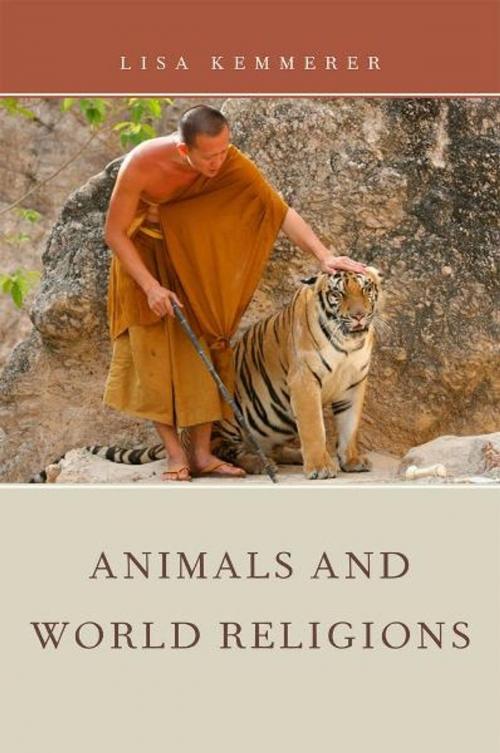| Author: | Lisa Kemmerer | ISBN: | 9780199912551 |
| Publisher: | Oxford University Press | Publication: | December 9, 2011 |
| Imprint: | Oxford University Press | Language: | English |
| Author: | Lisa Kemmerer |
| ISBN: | 9780199912551 |
| Publisher: | Oxford University Press |
| Publication: | December 9, 2011 |
| Imprint: | Oxford University Press |
| Language: | English |
Despite increasing public attention to animal suffering, little seems to have changed: Human beings continue to exploit billions of animals in factory farms, medical laboratories, and elsewhere. In this wide-ranging and perceptive study, Lisa Kemmerer shows how spiritual writings and teachings in seven major religious traditions can help people to consider their ethical obligations toward other creatures. Dr. Kemmerer examines the role of nonhuman animals in scripture and myth, in the lives of religious exemplars, and by drawing on foundational philosophical and moral teachings. She begins with a study of indigenous traditions around the world, then focuses on the religions of India (Hindu, Buddhist, and Jain) and China (Daoism and Confucianism), and finally, religions of the Middle East (Judaism, Christianity, and Islam). At the end of each chapter, Kemmerer explores the inspiring lives and work of contemporary animal advocates who are motivated by a personal religious commitment. Animals and World Religions demonstrates that rethinking how we treat nonhuman animals is essential for anyone claiming one of the world's great religions.
Despite increasing public attention to animal suffering, little seems to have changed: Human beings continue to exploit billions of animals in factory farms, medical laboratories, and elsewhere. In this wide-ranging and perceptive study, Lisa Kemmerer shows how spiritual writings and teachings in seven major religious traditions can help people to consider their ethical obligations toward other creatures. Dr. Kemmerer examines the role of nonhuman animals in scripture and myth, in the lives of religious exemplars, and by drawing on foundational philosophical and moral teachings. She begins with a study of indigenous traditions around the world, then focuses on the religions of India (Hindu, Buddhist, and Jain) and China (Daoism and Confucianism), and finally, religions of the Middle East (Judaism, Christianity, and Islam). At the end of each chapter, Kemmerer explores the inspiring lives and work of contemporary animal advocates who are motivated by a personal religious commitment. Animals and World Religions demonstrates that rethinking how we treat nonhuman animals is essential for anyone claiming one of the world's great religions.















